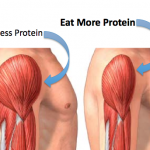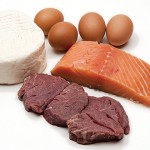

I promised myself that I wouldn’t take it upon myself to DEFEND intermittent fasting…mostly because I do not see that as my role.I enjoy intermittent fasting, and it is what I do to stay lean. I am educated in intermittent fasting, and I enjoy writing about it, but I don’t see it as my child that I need to defend when someone kicks sand in its face on the playground that is the internet.Yet, here I am.Hopefully, you’ll see that I’m not about to defend Intermittent Fasting, but rather defend logical thought.Most of (but not all) the slander about intermittent fasting that is popping up on the net is a mix of purposeful attacks (typically to gain traffic and Google rankings) and logical fallacies – ideas that seem logical, but on further investigation are lacking in soundness and validity.I really don’t mind when people discuss possible negatives of IF, since it forces me to expand my understanding of the research. However, I do mind when people cloud the science of IF with logical fallacies.I want to start with an obvious logical fallacy – that a high protein diet is exactly the same as intermittent fasting because it has almost identical effects on hypocretin neurons. Fine, then by that rationale, intermittent fasting is exactly the same as a high protein diet.Obviously this is incorrect, since high protein diets have myriad of health effects the intermittent fasting simply does not have. Which is exactly my point – intermittent fasting also has a myriad of health effects that a high protein diet does not have
Continued here:
Intermittent Fasting – Not My Fight | Brad Pilon's 'Eat Blog Eat'











 For now classes are 6pm and 640pm at 2840 Wildwood st in the Boise Cloggers studio.
Book your class NOW!
click this ==>
For now classes are 6pm and 640pm at 2840 Wildwood st in the Boise Cloggers studio.
Book your class NOW!
click this ==>








